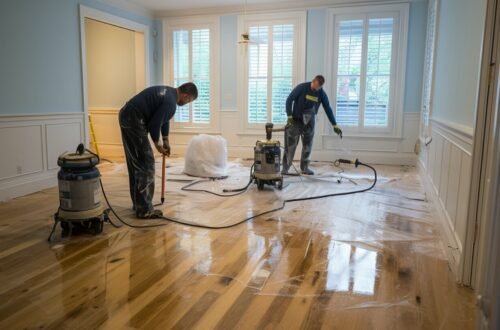Understanding the Need for Pool Cage Rescreen
Over time, exposure to harsh sunlight, heavy rain, and strong winds can weaken your pool cage screens. These screens are essential for keeping insects and debris out while allowing fresh air and sunlight to filter through. However, when the mesh becomes torn, faded, or loose, it compromises both the aesthetics and functionality of your enclosure. A pool cage rescreen not only restores the beauty of your outdoor area but also enhances its safety and comfort for your family.
Benefits of a Pool Cage Rescreen
A professional rescreening offers multiple advantages beyond appearance. Fresh screens improve visibility and airflow, making your pool area feel more open and inviting. New materials are often stronger and more resistant to UV rays, ensuring long-lasting performance. Additionally, a rescreen prevents unwanted pests, leaves, and debris from entering, keeping your pool clean and reducing maintenance time. Investing in a rescreen also increases your property’s overall value by maintaining a well-kept and functional outdoor living space.
Choosing the Right Screen Material
Selecting the proper screen material is crucial for a successful pool cage rescreen. Fiberglass screens are popular for their flexibility and affordability, while Pool cage rescreen polyester screens provide extra durability and resistance to wear. For homeowners living in areas with intense sunlight, screens with UV protection are ideal to prevent fading and damage. Fine-mesh options are also available to block even the smallest insects, such as no-see-ums. Consulting with a reputable pool cage contractor ensures you choose a material that best suits your climate and lifestyle.
Professional vs. DIY Pool Cage Rescreen
While DIY rescreening might seem cost-effective, it often leads to uneven tension, wrinkles, or improper installation. Professional technicians have the right tools, skills, and experience to deliver flawless results. They can quickly identify damaged frames, replace hardware, and ensure screens are stretched evenly for a tight, professional fit. Hiring a licensed expert saves time and prevents the need for costly rework later. The peace of mind knowing your pool enclosure is properly sealed makes professional rescreening a wise investment.
When to Schedule a Pool Cage Rescreen
It’s best to plan a rescreen when you start noticing small tears, discoloration, or a sagging appearance. In humid or coastal regions, regular rescreening every 5 to 7 years is recommended to maintain strength and clarity. Scheduling the service during cooler months can also reduce waiting times and make the process more comfortable for installers. Keeping your screens in top condition not only preserves your home’s appeal but also ensures a pleasant outdoor experience year-round.


